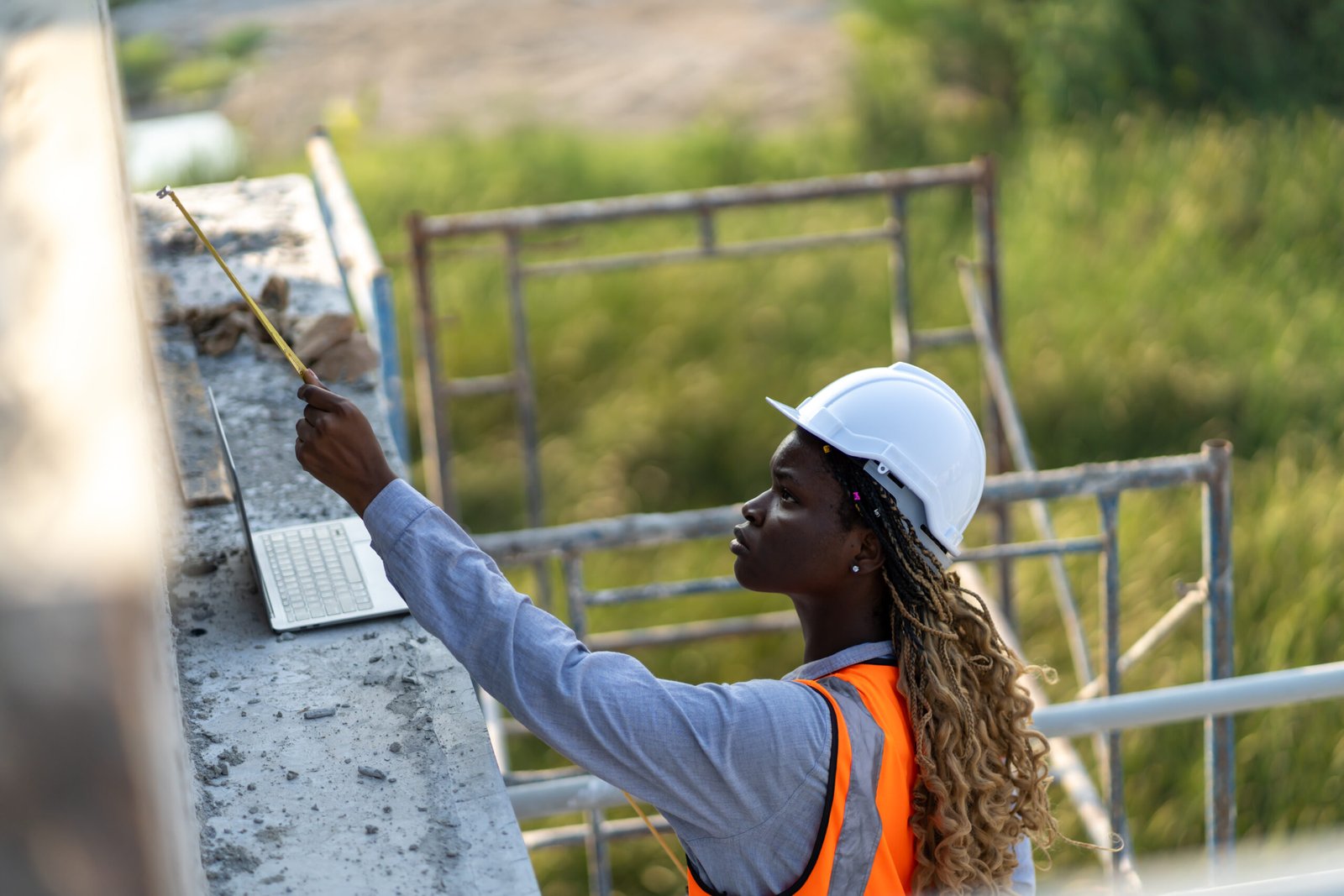5 Common Challenges When Building in Africa—And How to Overcome Them
5 Common Challenges When Building in Africa—and How to Overcome Them
Building in Africa presents a wealth of opportunities for investors and members of the diaspora looking to reconnect with their roots. It’s an exciting venture, but it also comes with unique challenges that can complicate the construction process. Here, we explore five of the most common challenges you might face when building in Africa and provide solutions to help you navigate them successfully.

1. Inconsistent Construction Standards and Quality of Materials
One of the most significant issues in Africa’s construction industry is the inconsistency in building standards and the quality of materials available. In some regions, construction practices and available materials may not meet international standards, which can lead to structural weaknesses and a reduced lifespan of the property. Poor material quality can result in safety hazards and higher costs for repairs and maintenance.
SOLUTIONS
- Work with Certified Contractors: It’s essential to hire contractors who are certified and adhere to local and international construction standards. Before starting any project, verify their credentials and ask for previous work references.
- Source High-Quality Materials: If you’re managing the project remotely, ensure that you have a local representative or contractor who can source and verify high-quality building materials. You can also consider importing certain key materials that are not readily available in the region.
2. Unreliable Local Infrastructure and Utilities
Infrastructure is a challenge in many parts of Africa, especially in rural or underdeveloped regions. The lack of reliable electricity, water, and transportation systems can cause significant delays in construction timelines. Power outages and water shortages can halt work, while poor transportation infrastructure can make it difficult to transport materials to the site.
SOLUTIONS :
- Invest in Backup Systems: If you’re building in an area with unreliable electricity, consider installing a generator or solar power system to ensure work can continue uninterrupted. Water storage tanks are also essential to mitigate shortages.
- Plan for Transportation Challenges: Collaborate with local authorities or logistics experts to find the best transportation routes and times for delivering materials to your site, minimizing delays caused by poor roads or traffic issues.
3. Complexity in Accessing Financing for Construction Projects
Accessing affordable financing for construction projects can be particularly challenging in Africa. Many financial institutions are hesitant to offer loans for construction due to the perceived risks involved, especially for international investors or members of the African diaspora. High-interest rates or complex loan requirements can also make it difficult to secure the necessary funds.
Solutions:
- Explore Diaspora-Specific Financial Products: Some financial institutions offer products specifically designed for diaspora members looking to invest in Africa. Research local banks and international financial institutions that offer these products.
- Consider Alternative Funding Sources: Crowdfunding, partnerships, or private investors may be viable options for securing the necessary funds for your project. In some cases, joint ventures with local developers can help reduce financial risk
4. Difficulties in Securing Land and Dealing with Paperwork
Land acquisition in Africa can be complicated due to unclear land titles, disputes over ownership, and lengthy bureaucratic processes. Ensuring that the land you purchase is free from any disputes and that you have all the necessary permits in place can be time-consuming and stressful, especially if you’re managing the process from abroad.
Solutions:
- Work with Local Legal Experts: Hire a real estate lawyer or legal expert who is familiar with the local land laws and can help you navigate the complexities of land acquisition. They can also verify the land title and ensure that all paperwork is in order before you make any purchases.
- Start Early: Begin the land acquisition and permitting process as early as possible. Working with local authorities to secure the necessary permits ahead of time will save you a lot of headaches down the road.
5. Cultural and Language Barriers in Managing a Local Workforce
Managing a local workforce can be challenging for international investors, especially when there are significant cultural and language differences. Miscommunication can lead to misunderstandings about project expectations, delays, or dissatisfaction on both sides. Understanding local work practices and communication styles is essential for successful project management.
Solutions :
- Hire a Local Project Manager: A bilingual project manager who is familiar with both local customs and the expectations of international clients can help bridge the communication gap and ensure that everyone is on the same page.
- Cultural Sensitivity Training: Educate yourself and your team on the local customs, values, and work ethics. This will help you build better relationships with the workforce and foster a more productive and harmonious working environment.
Conclusion
Building in Africa can be challenging, but with the right preparation and partners, you can navigate these obstacles and achieve successful outcomes. By addressing issues like inconsistent construction standards, unreliable infrastructure, complex financing, and cultural barriers, you can ensure your construction project runs smoothly and meets your expectations. At Ets Fara Mendy, we are dedicated to helping you overcome these challenges, providing you with the expertise and resources you need to make your project a success.




